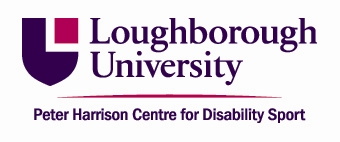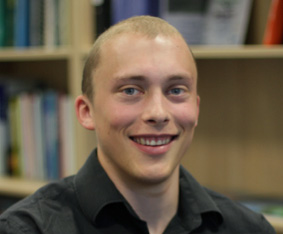Beyond the power of the metaphor captured in ‘Why Surfing?’ above, and looking at surfing through the lens of the latest understandings in physiology, sociology and psychology, it is clear why this particular activity has the power to be a catalyst for effecting positive change in so many of our service users’ lives.
Firstly, post traumatic stress disorder is all about the firing of the fight flight response and constant states of high emotional arousal.
The system is flooded with stress hormones; extra oxygen is taken in and extra blood circulates in order to prepare us for fighting or running away. When this response is fired in a genuine survival situation and we then ‘fight’ or ‘fly’ from a real danger we ‘use up’ this response (the cortisol and adrenalin, the extra oxygen and rapidly circulating blood) and, when we have successfully dealt with the situation, our system calms down. In PTSD, however, the fight / flight response is often triggered repeatedly and inappropriately and the awful feelings and the physical symptoms of anxiety and panic and irritability and anger associated with it are the result of this response being ‘all dressed up with no-where to go’. If, however, we undertake vigorous activity, such as surfing, we use up these excesses in our system just as reliably as we would by running away or fighting and we allow our system to calm down.
When we understand the vast difference between a system that is calm and a system that is highly emotionally aroused and the way in which our thinking, memory and decision making capabilities are hampered by the activation of the fight / flight response, it becomes clear that this experience of lowered levels of emotional arousal following a surf session can provide a valuable window of opportunity for building relationships, dealing with difficulties, gaining new perspectives and moving forward in helpful ways.
These ‘islands’ of time when the storm of PTSD abates and an individual is able to experience physiological calm can be valuable in other ways too. Even if much of their time is swamped by the unpleasant symptoms of high emotional arousal, recognising that at times their symptoms are less pronounced and then using these times as a resource and something to repeat as often as possible is a key to making improvements. Often, starting positive change is like rolling a snowball down hill; to begin with you have to push it but gradually its own weight begins to make it move naturally in that direction. Surfing, for many veterans, is just such a break from symptoms.
Equally taking exercise, whether we have suffered trauma of a physical or psychological nature or not and especially if it is exercise in good natural light, has long been recognised as beneficial. When we exercise, hormones called endorphins are released by the pituitary gland, enhancing our sense of well-being. There's also overwhelming scientific evidence that being physically active leads to a healthier life. People who do regular physical activity have a lower risk of many chronic diseases, such as heart disease, type 2 diabetes, stroke and some cancers. Taking care of your body and getting fit can also boost self-esteem and self confidence – both of which can be brought low by the experience of PTSD.
“The side-effects from the medication I was on made me put on weight. This was as bad as the PTSD for me because I’d always been really fit and looked after my body. Getting fit again has been really important ... it makes me feel a bit more like I used to.”
Exercise and exposure to natural light also positively affects the level of brain chemicals such as serotonin. Serotonin is a neurotransmitter linked to feelings of well-being and the levels of it are artificially raised by some anti-depressants. Indeed, research suggests that the benefits of regular exercise can be powerful and comparable to those of an anti-depressant for mild to moderate depression (symptoms of depression or feelings of low mood are often a part of many veterans’ experience of PTSD). By boosting levels of serotonin in these natural ways the benefits can be experienced without any of the debilitating side-effects that can accompany prescription drugs.
Serotonin is, in turn, closely linked to the production of the sleep hormone, melatonin (again, used in manufactured form to treat insomnia). As humans we are diurnal creatures which mean we are programmed to be awake during daylight hours and to sleep during the dark. When dusk falls, the supply of serotonin that we have built up during the daytime is converted into melatonin which is involved in allowing us to get to sleep. If we have built up a good supply of serotonin during daylight hours we are far more likely to fall to sleep easily and enjoy a good quality of rest. Given the sleep difficulties that are so often a part of PTSD, anything that aids our bodies in getting essential rest has the power to be extremely beneficial.
But above and beyond the environmental and physically based ‘feel good’ factors of surfing, there is also the fact that it is a skill that can be worked at, developed and improved on. It is now almost universally accepted that it is a human need to feel that we are achieving and competent in some area of our life and surfing can offer the opportunity to do so. In this way it not only provides an immediate experience of how it can feel when we achieve something or when ‘everything comes together’ but, it can also be a model for transferring this understanding into other areas of life.
Surfing also provides what has been described by our veterans as ‘a fast track to a tribe’. Humans evolved to live in groups and to be a part of a tribe or community is one of our basic human needs; indeed one of the most commonly reported difficulties faced by the veterans who come to us is a sense of isolation following the close camaraderie of being in the military. The human brain is not designed to function in isolation and when we are isolated our thinking tends to become more distressed or skewed. As anyone who has been in the services or been involved in expedition team work will know, a few hours of sharing raw experiences together, where you are watching out for your fellow beings is, in terms of bonding, far more effective than many hours spent together in a bar, in front of a computer game or even talking.
This understanding, along with the others detailed above is another one of the many that explains the smiles on faces and the many successes we are able to measure at Surf Action.
PHD Research
The effectiveness of surfing as a tool for improving veterans’ mental health, and in particular those suffering from PTSD, has recently been researched and published by Dr Nick Caddick of Loughborough University in association with Surf Action and published in the journals ‘Qualitative Health Research’ and ‘Sociology of Health and Illness’.

Dr Nick Caddick

Nick is a psychology research associate specialising in the areas of physical activity, mental health and military/veteran studies in the Peter Harrison Centre for Disability Sport at Loughborough University. The research, supervised by Dr. Brett Smith, sought to understand the impact that surfing has had in the lives of the Surf Action veterans. In particular, the research investigated the role of surfing in supporting the psychological health and well-being of veterans in the aftermath of trauma. Nick also worked at the European Centre for Environment and Human Health in Truro as part of his research into surfing and the ‘Blue Gym’.
The research used qualitative methods to explore veterans’ everyday experiences of PTSD and of surfing. Additionally, the project explored the impact of combat trauma on the partners and families of veterans, and looked to understand how effective support can be provided for family members. The research has provided extra knowledge that will benefit combat veterans and their families in the future and also helped to promote the understanding of the impact and benefits of surfing and being active in a natural environment.
The published research can be accessed below:
![]() - Surfing and veteran's well being
- Surfing and veteran's well being
![]() - Caddick et al 2015 masculinity PTSD & health
- Caddick et al 2015 masculinity PTSD & health
The Telegraph published an article about the research:
![]() - Telegraph Article
- Telegraph Article
Recent research by Kings College in London concluded that members of the UK Armed Forces are twice as likely to develop depression or anxiety as members of the general population. It found 18% of men and 25% of women in the forces reported symptoms of common mental disorders, compared with 8% of men and 12% of women in other areas.
A BBC article about this research:
![]() - Anxiety & depression within the military
- Anxiety & depression within the military
Surf Action is continuing to co-operate in research into the use of surfing and other high-intensity watersports and their benefits in helping alleviate the symptoms of PTSD and other stress related conditions, in order to achieve higher levels of health and wellbeing in sufferers.
Support Us
Donate
Fundraise
Volunteer
Provide Employment Opportunities
Sponsors
Supporters
Contact
Education
Education & Empowerment
Events
Copyright © 2024 Surf Action. All Rights Reserved. - Charity No:1140191